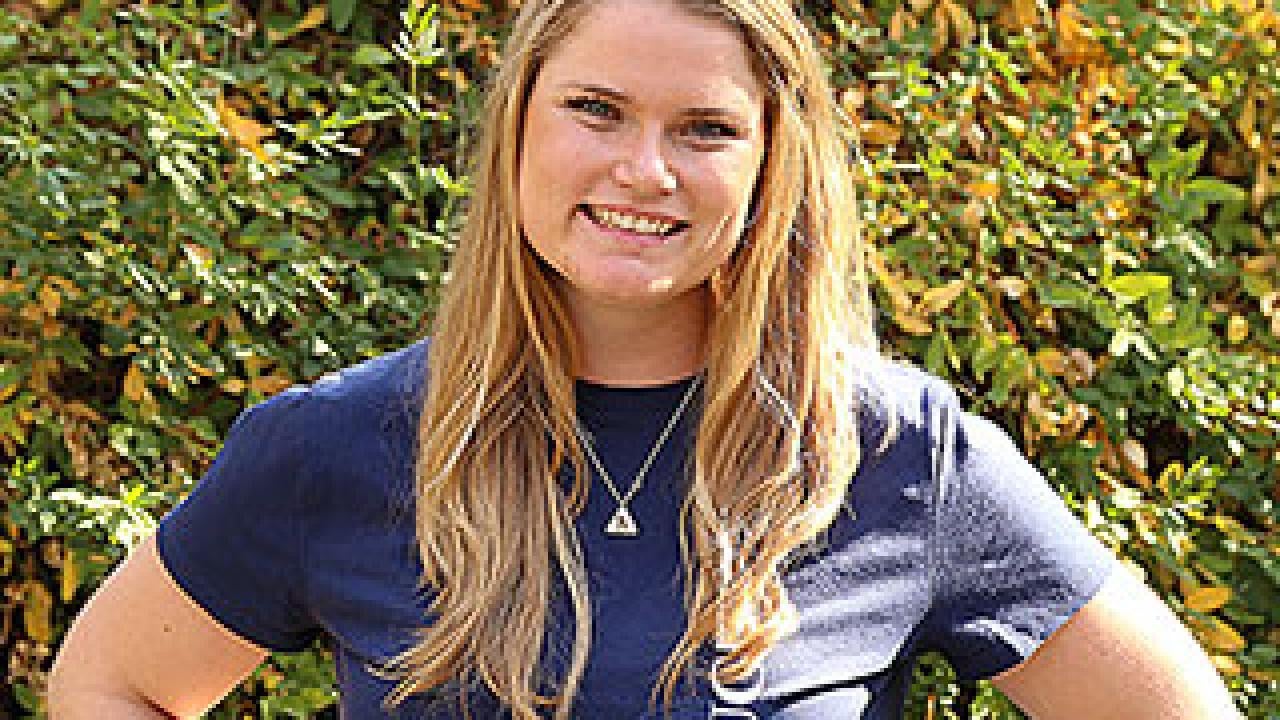The former president of the student body at the University of California, Davis, says it clearly: Sometimes we all need some help.
Carly Sandstrom, her fellow students and others are sharing their personal stories as the campus launches a major Web-based initiative to encourage students to feel comfortable talking about mental health and seeking help.
Each Aggie Matters, to be launched at a campus event on Thursday, April 24, is part of a larger $600,000 campus project and a statewide effort — both supported by the California Mental Health Services Authority and the voter-approved Mental Health Services Act (Proposition 63). The event will be held from 4 p.m. to 6 p.m. in MU II of the Memorial Union.
Sandstrom, a double major in international relations and economics, watched her mother struggle with mental health issues and found herself overwhelmed as leader of the Associated Students at UC Davis. “What I have learned, and what I hope others learn, is that if you don’t take care of yourself, you can’t care for others,” the senior said. “It’s OK to seek help. It does not make you weak. It makes you stronger.”
Zach Ward, a counseling psychologist with Student Health and Counseling Services at UC Davis, said the college years can be especially challenging. “Students are adjusting to the academic demands of their classes, the social opportunities, and the preparation for their professional careers — all while continuing to develop their sense of self, their sense of community, and their sense of what they want for their futures."
Research shows that half of all mental illness starts by age 14, and three-quarters start by age 24. But too much time goes by before young people get help — an average of six to eight years after the onset of mood disorder symptoms and nine to 23 years for anxiety disorder symptoms.
Stigma, according to a report of the U.S. Surgeon General, is one of the biggest barriers to seeking help. And one of the most powerful tools for breaking down that barrier, Ward said, can be students sharing their own experiences and helping to create a campus community of affirmation and support.
Event
Speaking at the launch event will be human development major Amanda Lipp, who serves on the board of the California National Alliance on Mental Illness and hopes to help others overcome adversity like she faced in childhood.
Her story includes an intense struggle during her freshman year at another university and a three-month stay in a psychiatric facility.
Lipp, who expects to graduate in June, said she doesn’t regret what happened to her that year. “It gave me the chance to face my fears, to face my adversity, to face my story and to further understand what had caused my behavior.” Watch a three-minute video of Lipp’s story.
Guests will be invited to write for the website their pledges to be an advocate for themselves, their friends and/or their community and to answer on large chalkboards what mental health means to them.
Website part of larger project
The Each Aggie Matters website itself invites students to share their stories and members of the campus community to write pledges. It also includes information on mental-health related topics — from the symptoms of depression to dealing with eating disorders — and campus and community resources.
The project is part of a larger Student Mental Health Initiative at UC Davis, which is supported by a three-year grant of more than $617,000 and is itself part of a UC systemwide mental health initiative.
In December, the UC Davis initiative launched Just in Case, a mobile-friendly website that helps students assess their own feelings and behaviors, provides tools for how to help a friend in need and guides students to campus and community resources.
The UC Davis initiative is also providing:
- presentations on recognizing and responding to students in distress;
- printed guides to help faculty and staff assist students in need of mental health support;
- enhancement of peer support and peer education programs; and
- more training for the counseling staff.
UC Davis mental health services
At UC Davis, Counseling Services offers confidential and free assessment, intervention and referral services for students, and consultation and crisis response for faculty, staff, students and parents. Student Health and Counseling Services provides urgent care for medical and mental health needs. Afterhours, students can receive counseling consultations by phone at (530) 752-0871 or talk to an advice nurse at (530) 752-2300.
Media Resources
Julia Ann Easley, General news (emphasis: business, K-12 outreach, education, law, government and student affairs), 530-752-8248, jaeasley@ucdavis.edu
Zachary Ward, Counseling Services, (530) 752-0871
